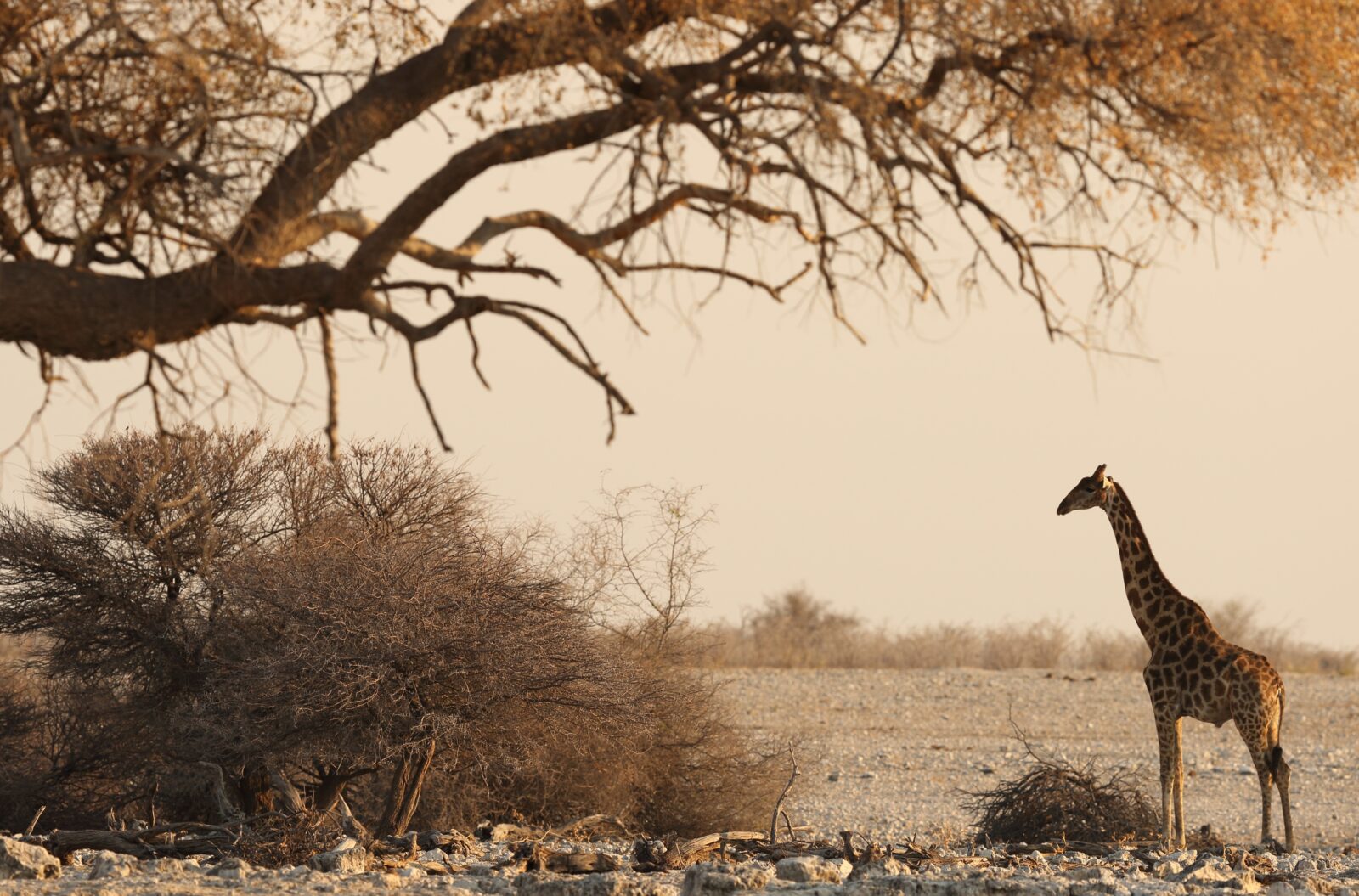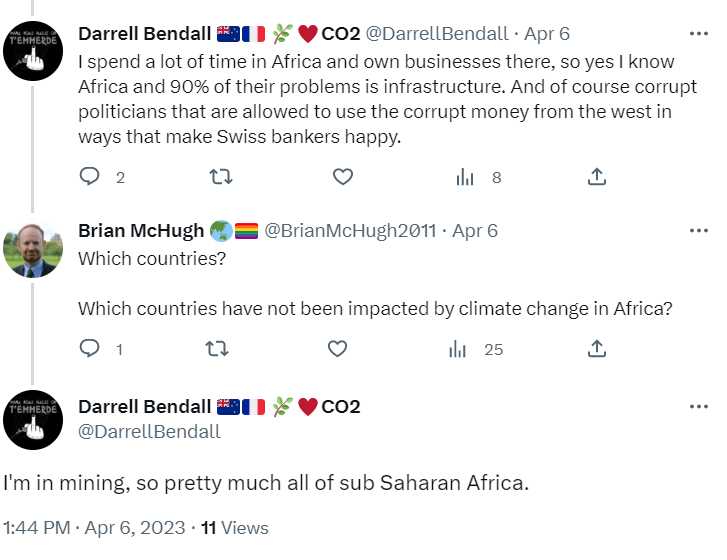It Is False That Climate Change Has Not Impacted Sub-Saharan Africa

A WhatsApp user shared a screenshot of a claim saying that sub-Saharan Africa has not been impacted by climate change.

“South Africa, Namibia, Botswana, Ghana, Mali, DRC, Sierra Leone, Zimbabwe, Zambia, Morocco, Tunisia, Algeria, Ivory Coast, Senegal. There you go,” the claimant added, mentioning these countries.
Using a simple Twitter search, we established that this was a threaded conversation between two Twitter users.
BACK GROUND
Sub-Saharan Africa refers to the geographical area and regions of Africa located south of the Sahara. These include Central Africa, East Africa, Southern Africa, and West Africa. It’s true that South Africa, Namibia, Botswana, Ghana, Mali, the DRC, Sierra Leone, Zimbabwe, Zambia, Ivory Coast, and Senegal are sub-Saharan countries. However, Morocco, Tunisia, and Algeria are not sub-Saharan African countries.
FACTS:
First of all, according to the United Nations Framework Convention on Climate Change (UNFCCC), “climate change impacts” are the effects of global warming and other anthropogenic (caused by humans) climate changes on the environment, ecosystems, and human societies. These effects have an impact on a wide range of industries, including infrastructure, public health, forestry, and agriculture. Rising temperatures, sea level rise, ocean acidification, altered precipitation patterns, and more frequent and severe weather events like storms, floods, and droughts are a few examples of how climate change is having an impact.
Climate change is one of the most pressing global challenges of our time, and its impact on sub-Saharan Africa is particularly severe. The region is already vulnerable to environmental stressors such as droughts and floods, and climate change exacerbates these challenges.
Kenya and Somalia, among other nations in East Africa, are suffering from more frequent and severe droughts, which have resulted in water shortages and crop failures. The drought in Kenya affected about 2.6 million people, according to the United Nations. The wildlife in Kenya has also been impacted by climate change because animals are being forced to migrate in search of food and water.
The African Development Bank stated that a number of countries, including Zimbabwe, Ethiopia, Namibia, Botswana, Mali, the DRC, Morocco, Tunisia, Algeria, the Ivory Coast, and Senegal, are experiencing climate-related problems. In addition, as rivers, lakes, and groundwater become increasingly depleted, these nations’ water resources are under stress. In addition, the water resources of these countries are under stress, as rivers and lakes dry up and groundwater becomes increasingly depleted.
The World Meteorological Organization’s 2022 State of Climate Africa Report highlights that heavy floods have also been caused by rising temperatures and altered rainfall patterns in Nigeria and South Africa. In March 2019, Cyclone Idai hit Mozambique, causing widespread destruction and displacement. The cyclone was exacerbated by climate change, with warmer waters in the Indian Ocean providing the energy needed to fuel the storm.
In addition, Tanzania’s coastline is at risk due to rising sea levels, with communities already being displaced by erosion and flooding. Climate change is also affecting Tanzania’s wildlife, including elephants, which are increasingly coming into conflict with humans as they search for water and food.
Climate change is affecting Mali’s wildlife, including species such as the African elephant and the West African lion, which are under threat due to habitat loss and other environmental stressors, according to the World Wildlife Organization.
According to the United Nations Development Programme (UNDP), Morocco, Tunisia, and Algeria are all North African countries that have felt the effects of climate change. Rising temperatures and decreased rainfall have resulted in water scarcity in Morocco, with droughts affecting agriculture and livestock production. Farmers in the Marrakesh-Safi region, for example, have had to adapt to water scarcity by shifting to drought-resistant crops such as olive trees and conserving water through drip irrigation systems.
Climate change has exacerbated desertification in Tunisia and Algeria, with sand dunes encroaching on fertile land and reducing agricultural productivity. Moreover, coastal erosion and sea-level rise have threatened tourism infrastructure and livelihoods, according to the United Nations.
Rating/Verdict:
The claim that sub-Saharan countries have not been impacted by climate change is false; climate change has had significant impacts on sub-Saharan African countries, including decreased crop yields, increased poverty and migration, and increased disease outbreaks. This has led to increased violence and displacement, exacerbating the humanitarian situation in many countries.
This fact-check was produced by the Debunk Media Initiative with support from Code for Africa’s PesaCheck, the International Fact-Checking Network, and the African Fact-Checking Alliance network.
2021 Africa Check Award-winning Fact-Checker, Media Challenge Initiative Fellow class of 2020, 2022 Code For Africa and International Fact-Checking Network Climate Change Fact-Checking Fellow, 360 Digital Sherlock, trained by the Atlantic Council’s Digital Forensic Research Lab in open-source intelligence.







